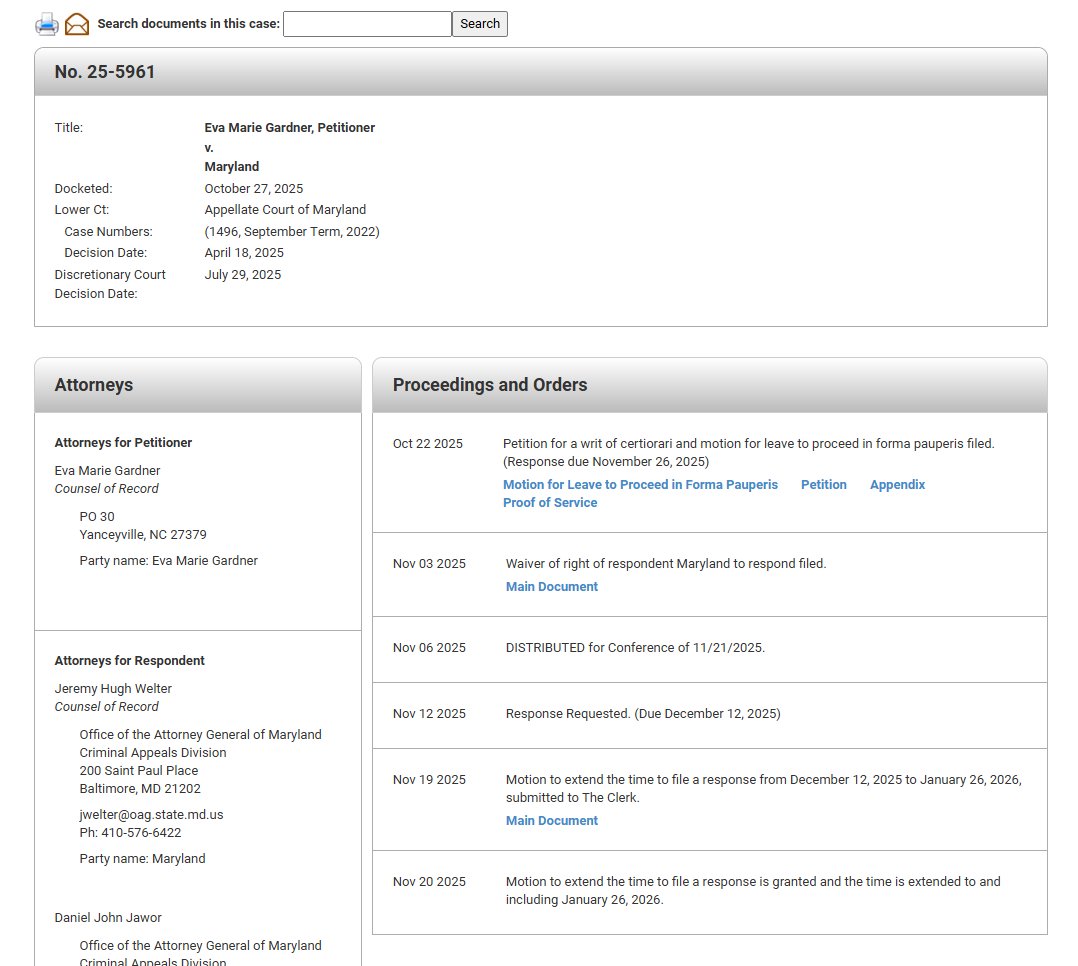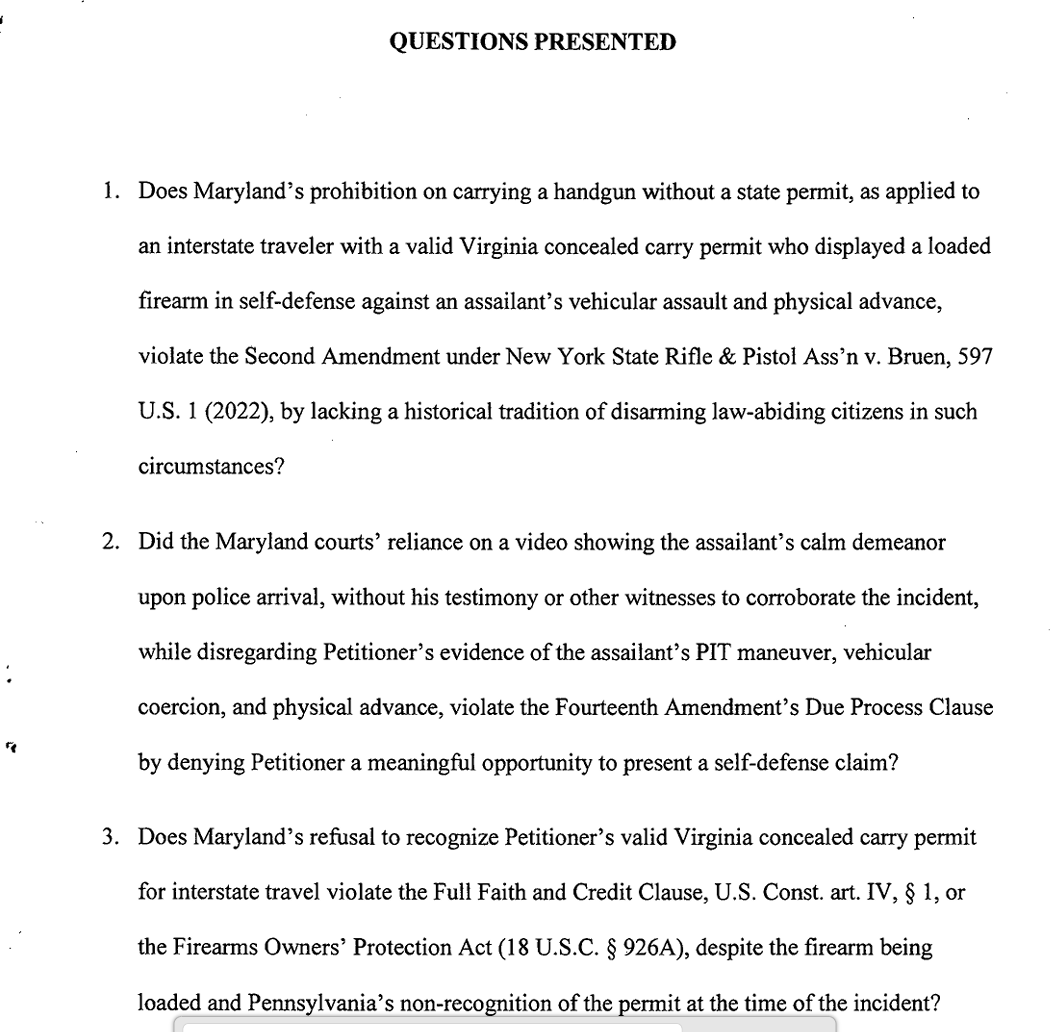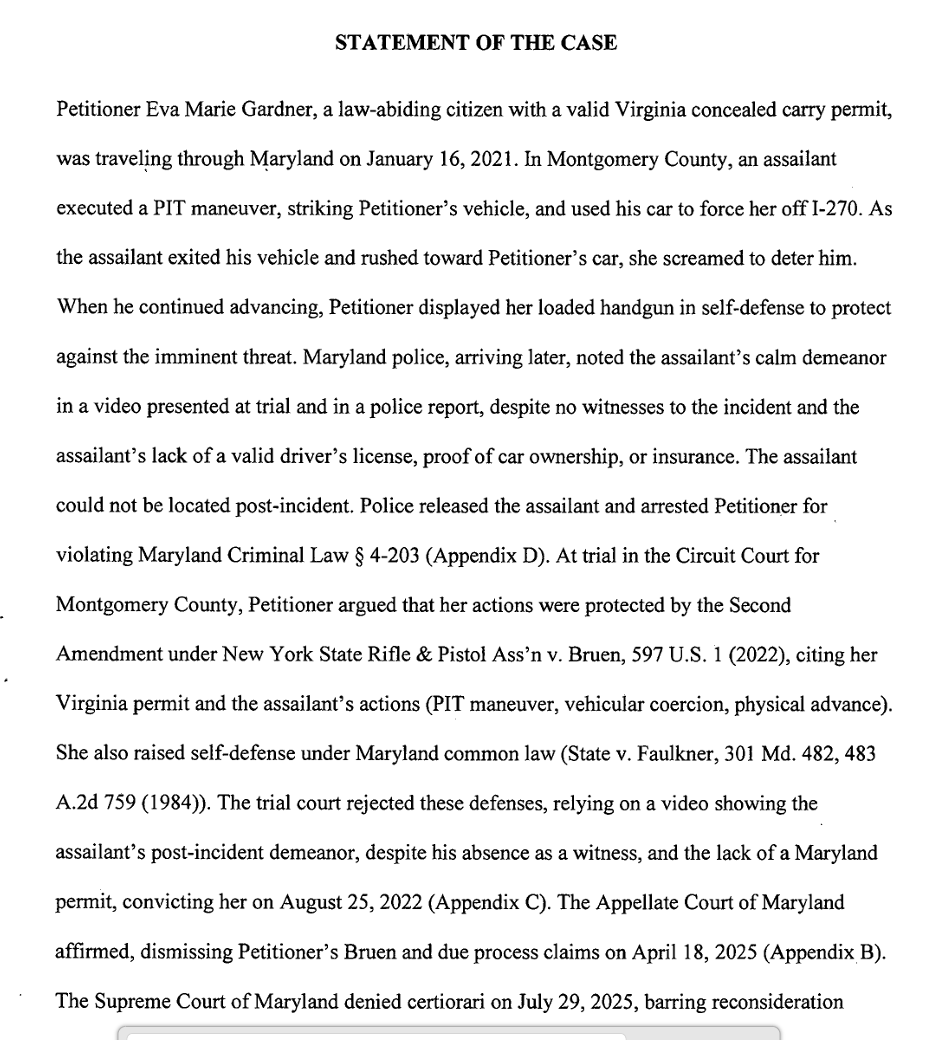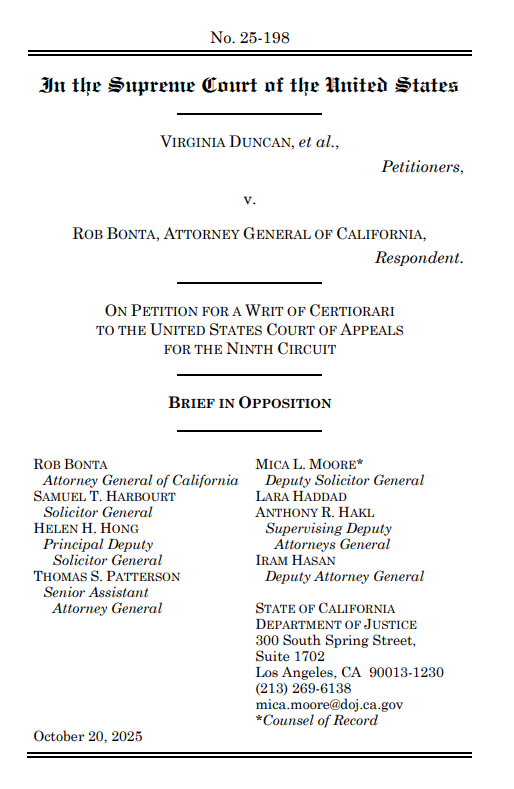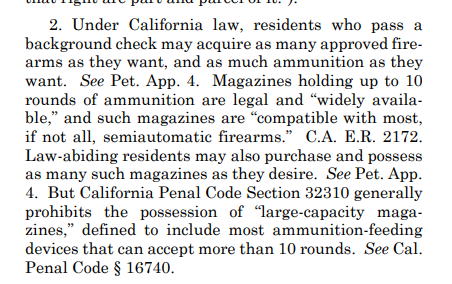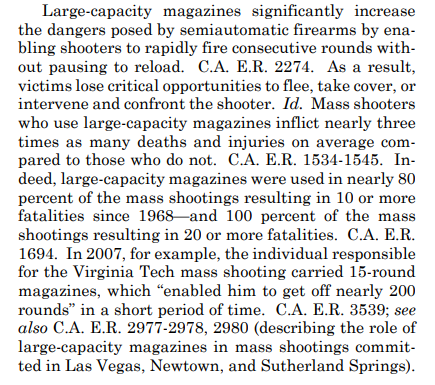Just filed our final responsive brief in Duncan. Benitez should rule on this in the coming weeks.
Some highlights in this thread, starting with how the state basically threw everything at the wall, because it had no historical law to point to pertaining to magazine capacity.
Some highlights in this thread, starting with how the state basically threw everything at the wall, because it had no historical law to point to pertaining to magazine capacity.
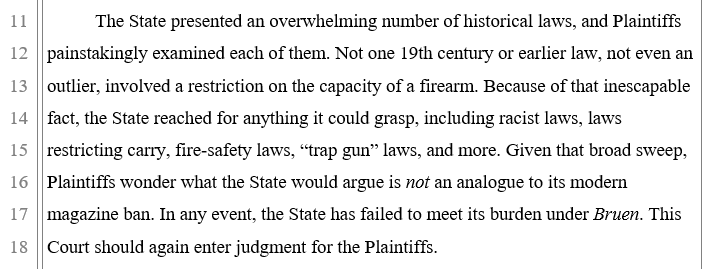
The State tried to straddle the line on whether or not magazines are arms, arguing that while some magazine is necessary for many firearms to function, it doesn't need to be one of over ten rounds. And because of that, the Second Amendment is not implicated at all. 
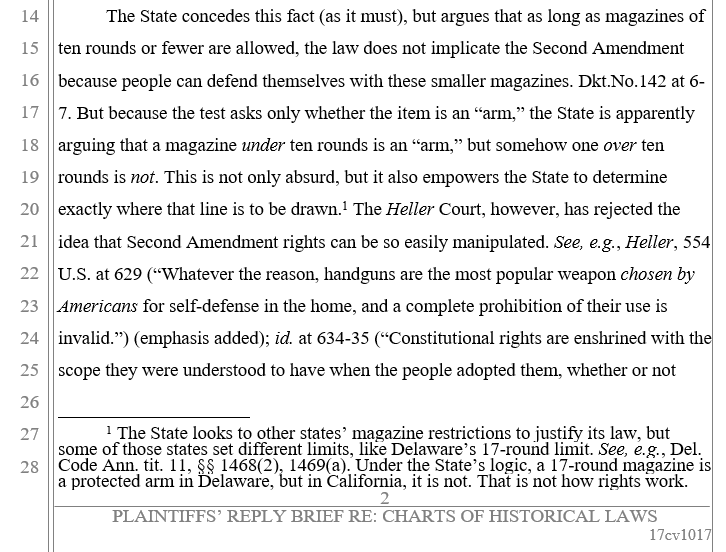
This is a brazen attempt by the government to re-insert interest balancing under the guise of a plain text analysis. 
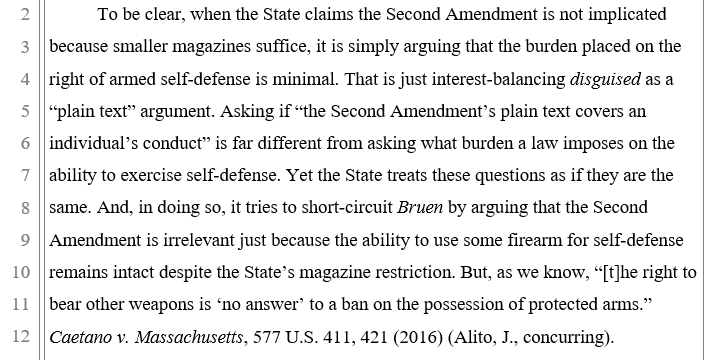
Trying to sneak in Sweeney and Tucker's declarations from other cases was a lame move. And the latter, Colonel Tucker, is a joke. 

"14 or more killed" is a very strange metric indeed. I bet the State's lawyers saw that there was a mass shooting with 13 killed that didn't involved so-called "LCMs", so they set the line at 14. But according to the reporting, the Parkland shooter used ten round magazines too. 

If states had regulated repeating arms when they came onto the scene, California would have had a great analogue. But they didn't. 

Because they didn't, the State bizarrely argues that some of the most iconic guns of the era were uncommon. K. 

A common refrain from the State is that "experts" like Saul Cornell should be allowed to tell us what laws the founders would have accepted. This is utter BS. 

We basically always insert something like this now so @fourboxesdiner doesn't yell at us 🤣 

Read the brief in full here: storage.courtlistener.com/recap/gov.usco…
• • •
Missing some Tweet in this thread? You can try to
force a refresh




